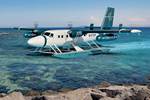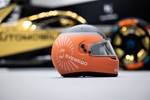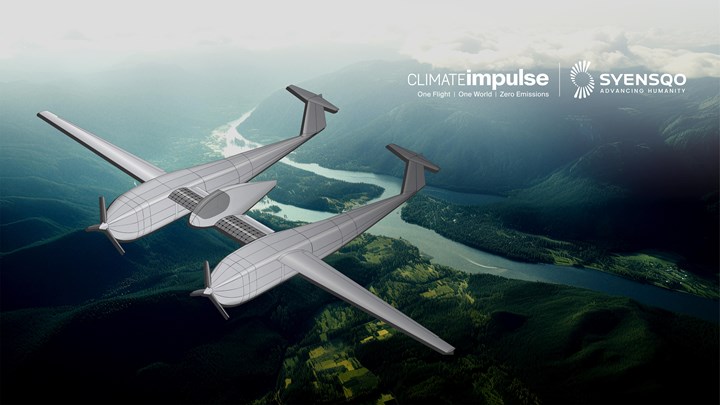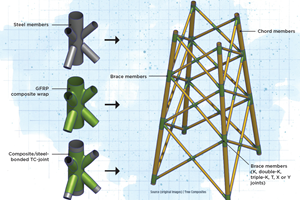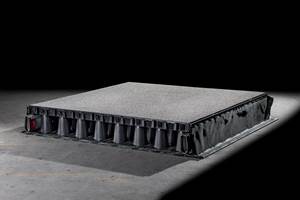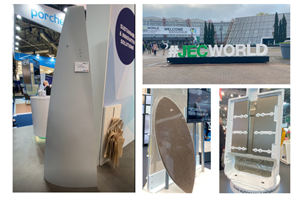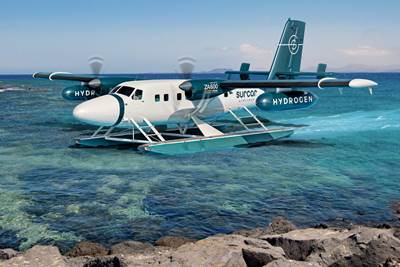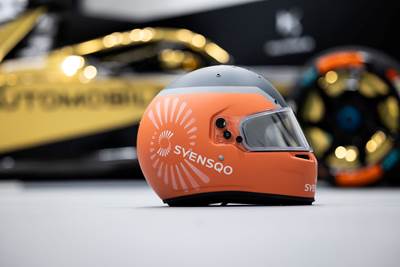Flagship Climate Impulse project targets non-stop, green hydrogen-powered flight
Bringing on Syensqo as its main materials and technological partner, Swiss explorer Bertrand Piccard hopes to stimulate climate action by demonstrating disruptive solutions in this 2028 aircraft design.
Climate Pulse, a new emission-free project involving a green hydrogen-powered airplane that can fly non-stop around the world, is a concept that Swiss explorer Bertrand Piccard has recently unveiled to demonstrate clean, more efficent transportation solutions. The flagship aircraft is backed by science company Syensqo (Alpharetta, Ga., U.S.) as the main partner, and will be built in France by composites engineer and navigator, Raphaël Dinelli.
“In this world full of eco-anxiety, we need to restore hope and stimulate action by demonstrating disruptive solutions that lead to sustainable progress. More than flying around the world with a hydrogen airplane, Climate Impulse will explore new ways of thinking and acting to promote a better quality of life,” says Piccard. “Efficient solutions will unite people from citizens and environmental activists to political and business leaders, shifting the narrative from sacrifice and fear to enthusiasm and action.”
Climate Impulse is planned to be completed in 2028. After 2 years of research, development and design supported by Airbus, Daher, Capgemini and with the participation of Ariane Group, the construction of the aircraft has begun and will last 2 years under the direction of Dinelli. Following another 2 years of testing, the aircraft will attempt to fly non-stop all around the equator with Piccard and Dinelli as pilots.
Beside the production of green hydrogen from renewable energies, and its use through fuel cells to feed electric motors, the major challenge lies in maintaining liquid hydrogen at -253°C during an estimated 9 days of flight. This will require innovations in the creation of adapted thermal tanks, anticipating the opening of new horizons in aviation technology. The collaboration with Syensqo will enable Climate Impulse to develop these cutting-edge systems.
Accordingly, Syensqo says that its composite materials, films and additives (formerly part of Solvay) will be crucial to the manufacture of the entire structure of the hydrogen aircraft — from the fuselage to the wings and hydrogen tanks. It will provide lightness, alongside mechanical and thermal properties. When it comes to green hydrogen, the company’s high-performance materials (for proton exchange membranes and binders for electrodes of the fuel cell) will also be key enablers to confer high-power density and efficiency, also allowing more a more compact plane design.
The latest adventure of Bertrand Piccard was Solar Impulse, the round-the-world flight in a solar-powered airplane. Solar Impulse was a symbol based on the intuition that renewable energies and cleantech solutions could achieve environmental objectives considered to be impossible. Since then, more than 1500 efficient solutions have been identified and labeled by the Solar Impulse Foundation, certifying their environmental benefit and economic viability.
Born of this heritage and taking it further, Climate Impulse wants to showcase concrete technologies that can revolutionize the aviation industry, and the mobility sector in general.
“We are thrilled to be part of this ultimate flight, a non-stop, zero-emission, round the world fueled by green hydrogen,” Dr. Ilham Kadri, CEO at Syensqo, says. “Our 13,200 Syensqo employees are proud to be part of this human, environmental and scientific adventure, showcasing the power of their sustainable innovations that will drive carbon neutrality for our customers and advance humanity.”
Related Content
Novel composite technology replaces welded joints in tubular structures
The Tree Composites TC-joint replaces traditional welding in jacket foundations for offshore wind turbine generator applications, advancing the world’s quest for fast, sustainable energy deployment.
Read MorePlant tour: Arris Composites, Berkeley, Calif., U.S.
The creator of Additive Molding is leveraging automation and thermoplastics to provide high-volume, high-quality, sustainable composites manufacturing services.
Read MoreCirculinQ: Glass fiber, recycled plastic turn paving into climate solutions
Durable, modular paving system from recycled composite filters, collects, infiltrates stormwater to reduce flooding and recharge local aquifers.
Read MoreJEC World 2023 highlights: Recyclable resins, renewable energy solutions, award-winning automotive
CW technical editor Hannah Mason recaps some of the technology on display at JEC World, including natural, bio-based or recyclable materials solutions, innovative automotive and renewable energy components and more.
Read MoreRead Next
EcoPulse aircraft demonstrator makes first hybrid-electric flight
The demonstrator aims to evaluate the operational advantages of integrating hybrid-electric distributed propulsion, with specific emphasis on CO2 emissions and noise level reduction.
Read MoreSurcar Airlines selects ZeroAvia hydrogen-electric engines to power flights in the Canary Islands
Surcar plans to retrofit Twin Otter seaplanes with the ZA600 powertrain, which will use compressed gaseous hydrogen stored in composite pressure vessels.
Read MoreSyensqo to sponsor DS Penske Formula E team
Three-year partnership will bring high-performing polymers and composites to the forefront of electric vehicles to build on their efficiency, safety and light weight.
Read More


